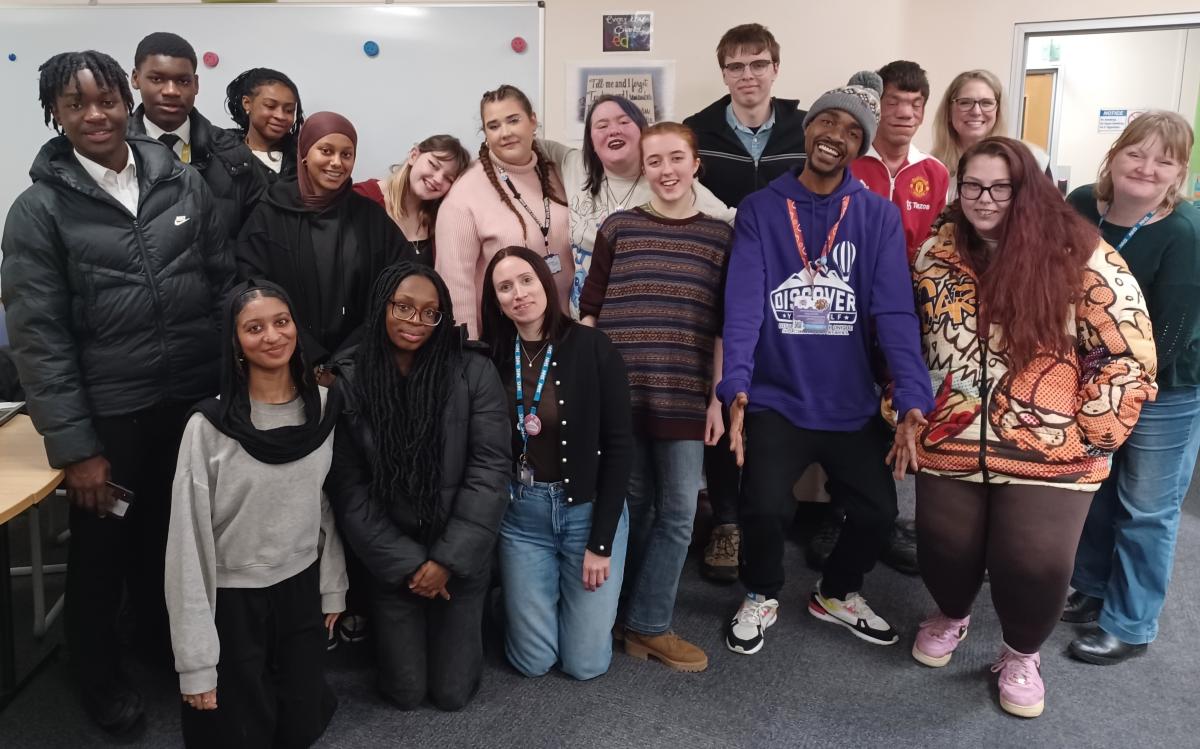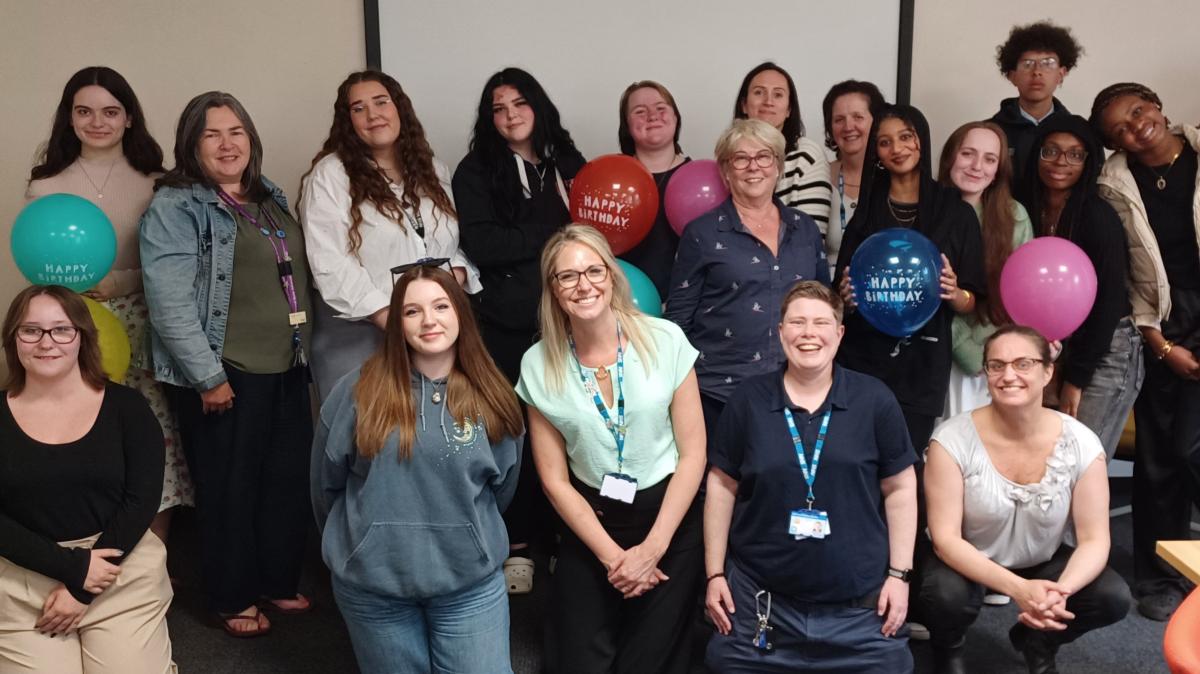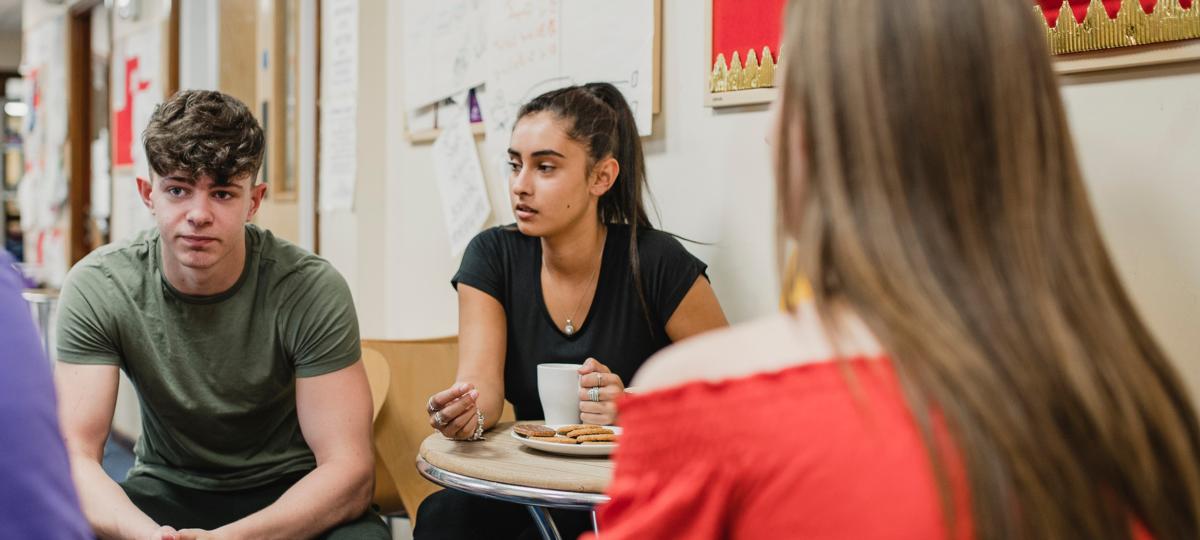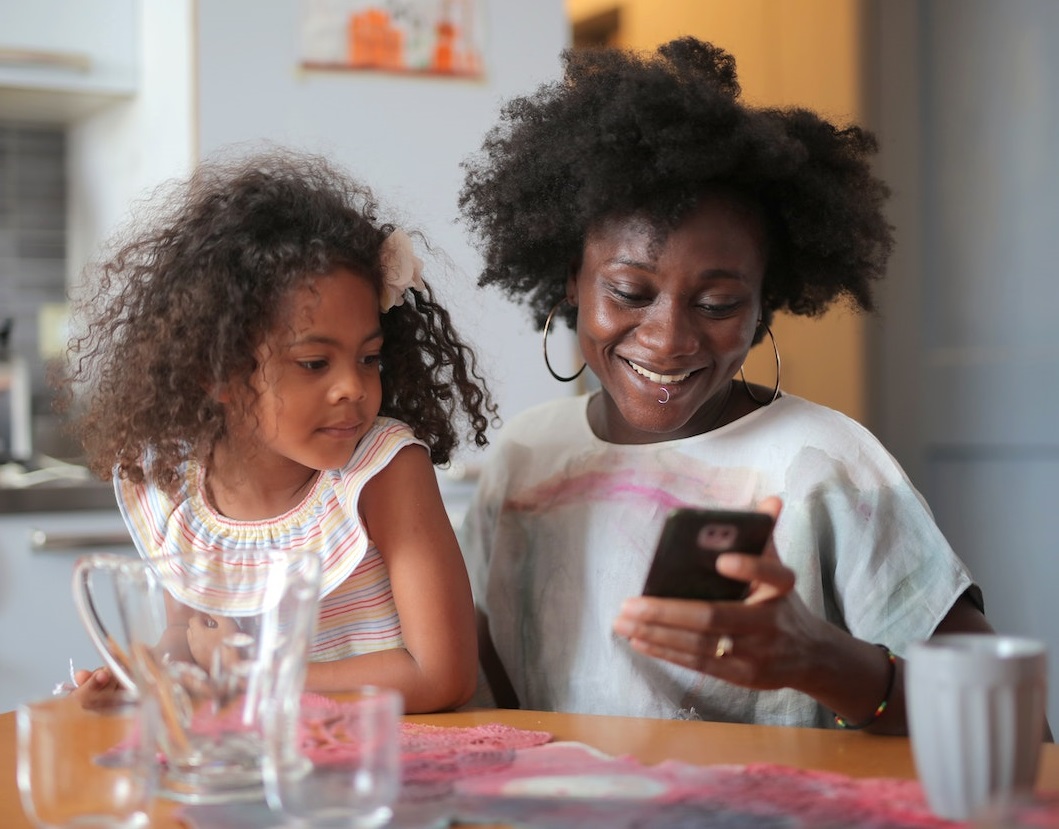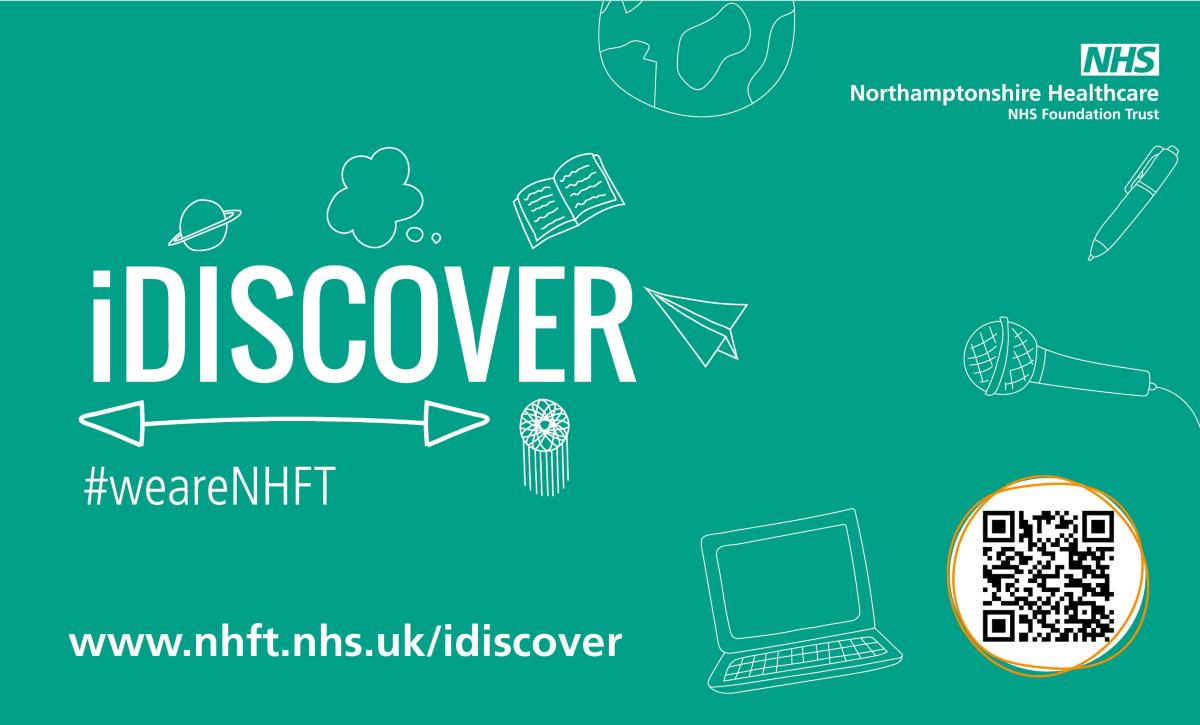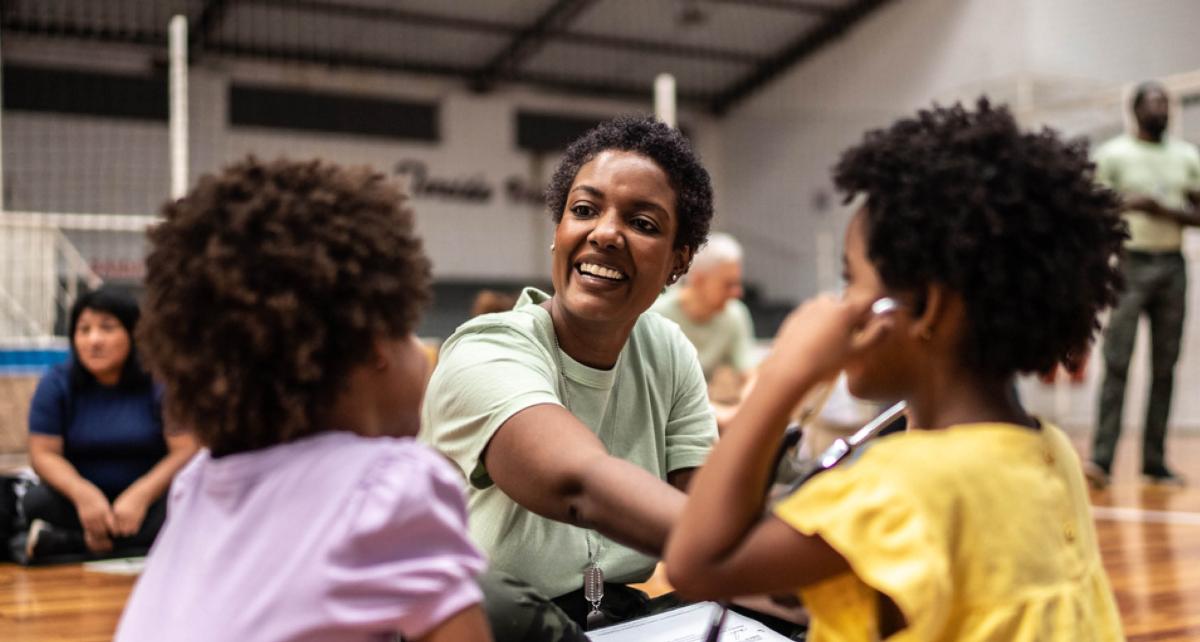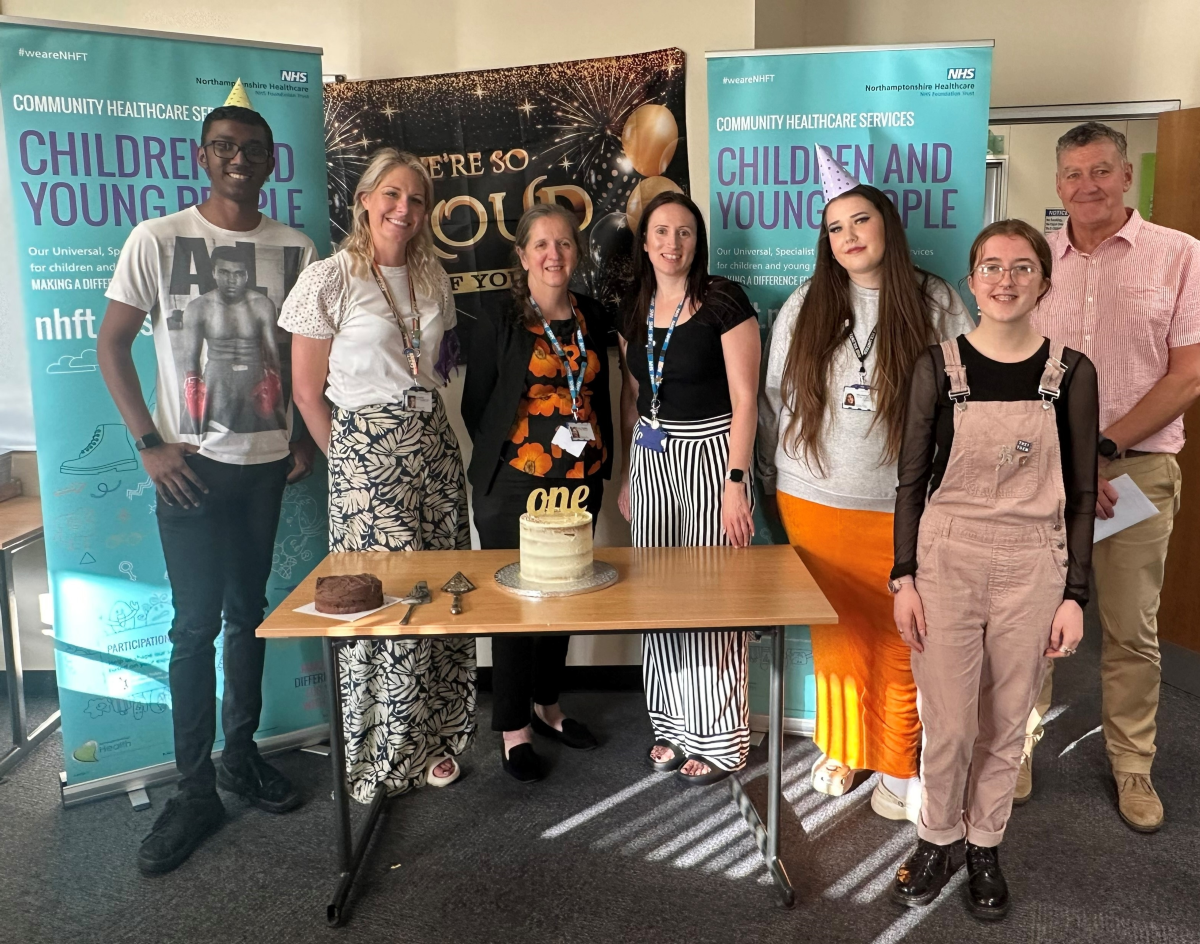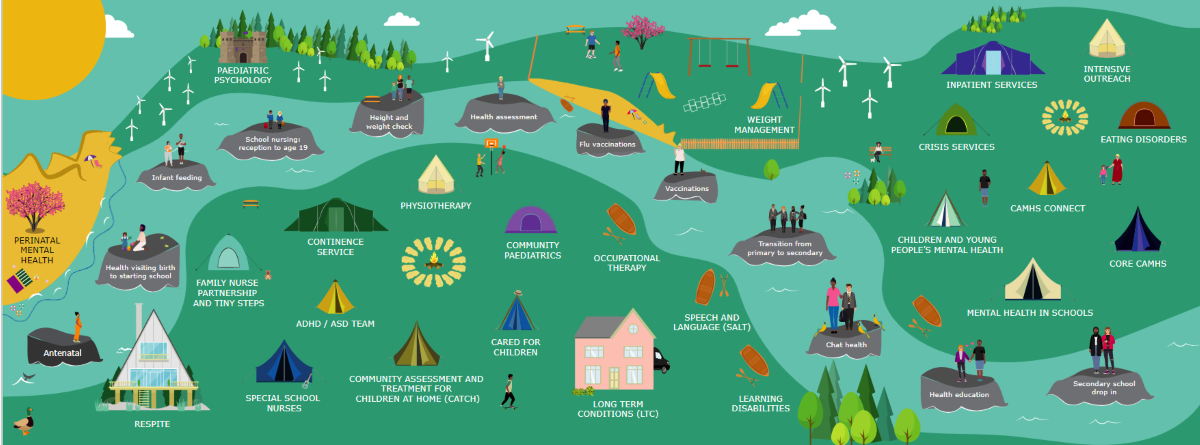What is CYPMHS?
What is CYPMHS?
What does CAMHS (CYPMHS) mean?
CAMHS means Child and Adolescent Mental Health Services and CYPMHS means Children and Young People’s Mental Health Services. This is a very broad statement and every service in Northamptonshire that works with Children and Young people has a responsibility to look after the mental wellbeing of children and young people. Within this broader term there is a specialist provision for children and young people that is often what is referred to as CAMHS or CYPMHS.
What difficulties does CYPMHS support cover?
The specialist aspect of Child and Adolescent Mental Health services is to support young people who continue to experience difficulties with their mental health when other services have already been used or there is agreement that the presenting difficulty is likely to fall within the remit.
There are a number of services within the CAMHS specialisms ranging from early intervention through to complex end enduring mental health difficulties. You may hear a number of terms such as “low level”, “Common Mental Health Problems”, “mild mental health difficulties”, “moderate to severe mental health disorder”. This isn’t the best description and is quite often an internal use of language within services that helps us and others be clear on what difficulties meet what we as a service are asked to help with. It can be confusing for people and in general terms it means where someone is experiencing difficulties that meet what are referred to as diagnostic levels.
We provide support for anxiety and depression as a general rule although there are a number of difficulties that fall under these general descriptions. The process that we follow to understand the severity of someone’s difficulties helps us consider where the child’s needs will be best met and it can quite often be the case that we signpost people to services outside of ours if we believe there needs can be met. We do not create mental health records for children and young people unnecessarily.
Who works in CYPMHS?
CAMHS/CYPMHS is a collection of people from various professionals and backgrounds. It is referred to as a multi-disciplinary team that consists of Clinical Psychologists/Psychological Therapists/Cognitive Behaviour Therapists/Mental Health Nurses/ Psychiatrists and other Mental Health Practitioners. This range of people mean that we have a mix of skills that can provide treatment that is evidence based and within the clinical guidelines set out by specific organisations that oversee services,
How do I get help from CYPMHS?
How do I get help from CYPMHS?
What is the referral process?
Bearing in mind the concept that CAMHS first and foremost is a term that covers ALL services providing support to children some support is available without the need for any specific referral.
Referrals to services in Northampton are usually submitted via professionals that have had some involvement with the child and/or family they wish to refer. There is an online process where a referral is completed and submitted to what is called the referral management centre. The referrer would mark on this form if the service for emotional wellbeing and mental health was required and then the information is reviewed and a decision made as to what service is likely to be the most suitable to meet the needs based on the information provided. There is a guiding principle that wherever possible the least invasive or “lowest” intervention should be offered in the first instance and therefore not all referrals for mental health concerns are sent to CAMHS/CYPMHS.
What are the waiting times like?
What are the waiting times like?
How long will I be waiting?
Waiting times vary across the whole CAMHS service. We often provide what is referred to as an initial assessment as a first appointment. Our aim is to provide this within 13 weeks from when we receive the referral to the service however, if the referral rate into our service increases then this can take longer. This appointment is where we gather information about difficulties and helps us to think about what may be helpful as the next step in recovery.
It is very difficult to calculate wait times due to a number of reasons. At the moment for some routine therapy interventions our waiting times are up to a year and in some cases longer. Following an assessment appointment, if it is deemed that support from a specialist service within CAMHS is necessary then a pathway is identified. Some pathways within our service have a higher number of people waiting for intervention than others.
Can I get a last minute cancellation appointment?
Cancellation appointments are sometimes available for initial assessment appointments.
What will happen at my first appointment?
What will happen at my first appointment?
Will it just be the parent/carer ?
Where possible we try and gather as much information as possible to help us understand the difficulties from the perspective of everyone involved. Depending on the age of the child we may initially meet with parents only.
Will it just be my child ?
Older young people are sometimes seen alone depending on their wishes however, we do try and encourage involvement from any important people in the child’s life. It is quite often the case that we meet parents with their children initially and then offer the young person the opportunity to be spoken with alone.
Do parents attend all sessions with the child?
Not necessarily, particularly if the child is having one to one therapy for a specific presenting need. It may be that the appointment is split between the two. Some treatment plans are very involving of parents and care givers to ensure that the work towards recovery continues outside of sessions.
How long will the 1st assessment take?
In general up to 90 minutes is allowed for the initial assessment appointment however in certain situations assessment is carried out over a number of appointments.
Questions that I will get asked ?
Questions asked are used to gather information to help us understand how someone is experiencing their difficulties that led to them seeking support.
We ask questions that help us understand how a person is affected in relation to their daily life across all areas in relation to how they feel physically, how their behaviour has changed, how their thoughts are affecting them etc. Questions are often guided by the direction of the conversation at the time and it is not necessarily something that is scripted. We seek to try and understand the overall impact of what is being experienced so that we can set goals with the child/young person based on this.
Some of the questions we ask may seem strange or out of place (for example questions around pregnancy, birth and very early developmental information) however these do help us to understand the potential impact of early life experience.
We may ask parents or carers what they see in relation to their concerns about the child or young person. Often, behavioural challenges are viewed as mental health disorders therefore it is important also for us to ask questions as to how things are interpreted.
Treatment questions
Treatment questions
Does my child need to take medication?
Medication is sometimes prescribed however this depends on a number of factors that are informed by the situation. Medication is rarely used without some form of talking therapy also being in place.
What type of therapies will be offered?
Where can I find out more about my child’s treatment?
Therapy provided is informed by the presenting difficulty and most often is Cognitive Behaviour Therapy or other evidenced based intervention. There is a lot of information available about treatments for specific presentations that can be provided when there is an understanding of a “probable diagnosis” however we avoid firm diagnosis of a child or young person where possible. In this respect therapy provided may be a more individualised approach that combines various aspects of a number of therapeutic approaches rather than one specific model and this can be discussed with the clinician(s) involved in the care of your child. Quite often a general term of psychological therapy is used.
What changes do you expect to see if the treatment works?
(I have used the word “treatment” as this is how the question is phrased. It is important to consider that treatment is so is generally something that is “done to” someone. We often use terminology such as intervention or therapy – There is no perfect way to describe things for every individual however, it is important to understand that whatever we as a service undertake it is with someone collaboratively and with their consent.)
Treatment itself may not necessarily work in the traditional way it is viewed. People sometimes think that treatment is a cure to someone’s difficulty. Our aim is to help people understand what they are experiencing and help them manage these difficulties based on what we currently know as evidenced based treatments. We discuss how difficulties can sometimes be maintained by how we have coped with them so far. The aim of treatment is to lessen the impact of the difficulty and increase an individual’s ability to cope with the difficulty. Often increased coping leads to increased ability to overcome the previous obstacles. Any treatment plan is based on agreed goals.
Any positive changes would be based on the goals set as agreed outcomes of therapy. For example if a child was being treated for anxiety and had become avoidant of certain situations a goal of therapy may have been identified as “I want to be able to go out with my friends more often”
What if the treatment doesn’t work?
If there is an agreement that the current treatment plan is not working (goals not being achieved) then there would need to be a discussion as to the benefit of continuing the current plan. We have to consider a number of factors when working with children and young people as to what may be affecting progress. Any treatment plan is collaborative and requires most work from the individual we are working with. There sometimes has to be an agreement to end treatment, consider an alternative treatment pathway or agree on a therapeutic break. Difficult decisions are sometimes made and there can be disagreement as to the outcome and open and transparent communication in relation to this is essential.
How will the treatment make my child feel?
Some difficulties experienced can initially begin to feel worse for an individual when they begin therapy. This is because usually someone has developed what we refer to as “coping mechanisms” as a way of managing the own emotional distress. As this is talked about it can feel harder to deal with initially and appear to be unhelpful. This is a key discussion in therapy and supported throughout.
Will there be treatment sessions involving the family? Could we have family therapy?
Decisions regarding therapy can change based on the information that is gathered throughout sessions. In this respect intervention and assessment happen on an ongoing basis and sometimes it is recognised that difficulties being experienced remain understood in a wider context that just a problem or diagnosis within the child. In certain situations the wider role of the relationships a child has sometimes inform a more family/relational based intervention.
Who is my child's key worker or care coordinator?
This depends on how the plan for support develops. Sometimes only one clinician is involved in the care of a young person throughout the episode of care and other times a number of people can become involved. This would be discussed and you would be kept informed on an ongoing basis if changes in this respect were being considered (subject to age and consent of the child in relation to previous information regarding confidentiality).
Can I see my child’s care plan?
A child’s care plan and the clinicians involved with their care are involving of everybody and should be collaborative and inclusive. Unless there is a clear rationale for withholding information from parents we share al information we can. We have to respect an individual’s right to confidentiality where this is requested however, we would never withhold information in relation to risk or child protection concerns and are duty bound to share this.
How can I help my child?
How can I help my child?
What can parents and family members do to help?
Treatment plans often consist of and individual having to make changes outside of therapeutic sessions. Parents and family members are invaluable in supporting these plans based on what has been identified. For example helping someone recognise they are avoiding something due to anxiety can be helpful or encouraging someone to do more when they are low in mood can be helpful. This should be discussed with the clinician who is involved in the care of your child.
How can I keep my child safe at home?
Some children and young people manage their distress in ways that increase the risk of harm to themselves. It is helpful to acknowledge distress when it is known and encourage alternative ways of managing this. There is a lot of information available in relation to self harming behaviour that can be provided however emotional safety is as important. Accepting that some behaviour may be a symptom of low mood or anxiety may be helpful. Often advice is given to reduce any access to potential harmful implements or medications and this can be difficult to achieve in your own home. Providing and maintain and environment that is empathetic and nurturing is often a strong safety mechanism.
Are there strategies I can use when they are distressed?
There are a number of strategies that can be helpful for individuals however every individual will benefit from different things so this is difficult to answer clearly. Distraction can be helpful or the development of a self-soothing box can be useful. Distress is often a part of our lives and the ability to cope with it can be difficult. Specific ways of responding to and managing distress for your child should be discussed with the clinician involved.
Will my child be working with the same person consistently?
Where a child or young person is allocated to a clinician for a specific therapy it is usual for this clinician to be consistent throughout the duration of treatment. There are occasions where it becomes apparent that the agreed therapy is not helpful and that an alternative may be considered which would likely lead to involvement from another clinician. There is also possibility that if a medic or psychiatrist is involved in the care that this could change during the episode of care.
How long will each session be?
Generally each therapeutic session is scheduled for an hour at a time.
Can I get financial support as a carer?
There are financial support systems in place that are available however we do not offer direct advice in relation to this. Citizens Advice would be our recommendation to obtain information in relation to this.
What are the rules about confidentiality?
Every client has the right to confidentiality however where possible we obtain consent to share information with parents/carers. If a child is above a certain age we have guidelines to follow in respect of their right to their confidentiality and this is in respect of their competence. We have a responsibility to balance the rights of the child as our patient and the rights of those who have parental responsibility. We make it clear that confidentiality is not the same as secrecy and in this respect we are duty bound to share any information if we feel it relates to the safety or potential risk to anyone.
Can I still be involved if my child transitions to adult services?
This would very much be a discussion to have at the time of transition and also how your child is at the time. The rights of an individual change considerably when they reach adulthood however, if there is an expressed wish from the patient to involve certain people in their care it should be an included part of their care plan. Discussion with the service at the time of referral could also be had but equally would need reviewing at each appointment.
If I am not happy with my child’s treatment who do I speak to?
In the first instance we would recommend that a discussion is had with the clinician involved. We are open to communication in relation to this and many factors can contribute to unrest in terms of what is being provided. If there are barriers to having a discussion with the clinician involved then it would be recommended that a discussion is had with a senior within the team and if this does not lead to a satisfactory outcome then other escalation procedures can be followed.
What other avenues are there if the therapies do not work for my child?
Understanding what is contributing to a lack of progress is important and again, we rely on open and transparent communication regarding this. Anyone has the right to stop their treatment or explore alternative approaches. As a service we are required to provide evidenced based interventions and therefore may not necessarily be able to provide or recommend other therapies. Sometimes people are just not ready to benefit from what is offered and that sometimes only becomes apparent when treatment has started.
Is there help and support available for parents/carers?
There are a number of resources available to parents and carers and at times we may make recommendations that adults seek support for their own emotional wellbeing. Our participation team also work hard with parents and carers to identify ways to support as well as involving them in the development and improvement of services.
Transitions
Transitions
Age of transition?
Transition is not necessarily an age specific process as children and young people often transition through services a number of times. In terms of transition to adult services this often is considered to be the time period between 16 & 18 years of age.
When will the transition process start?
The formal transition process to adult mental health services (if indicated) starts at the latest 17 Years and 6 Months. By this time it is usually understood if someone is experiencing a mental health difficulty that will require ongoing care from adult mental health services or whether their needs can be met by their GP. Certain medications for example require ongoing review by a psychiatrist and some can be reviewed by a GP.
How long will the process take when transitioning from CAMHS to adult services?
The process of transition should be complete by the time the child has reached the age of 18.There is sometimes continued involvement from Children’s services post 18 if there is a clinical reason to do so and it is in the best interest of the child.
Will my child have a joint appointment with CAMHS & AMH?
This would be the ideal situation however, it is not something that can be guaranteed. Wherever possible we aim to have a joint appointment so that a smooth transition is achieved. It is an area that we have made efforts to improve and will continue to do so.
What if my child is not eligible for AMHS?
There are two types of services within adult mental health provision. There are services within what is referred to as primary care (This is where GP services sit) and then there is something that is referred to as secondary care. In Childrens services the division between the two is described as universal and specialist services. The CAMHS / CYPMHS is provided under specialist services and is the equivalent of secondary care in adult mental health. Depending on the situation for your child and the severity of the difficulties would inform which service is likely to respond to the needs present at the time your child reaches adulthood. So it is likely that there will be an adult service available that would be identifiable at the time.
Are there any non-NHS supports like local youth counselling, charities?
There are various voluntary sector organisations that offer support for emotional wellbeing for both children and adults that can be accessed. We do not make specific recommendations for services that we do not operate as we cannot oversee their practice however, we freely provide information to people in order for them to consider the options available to them.
Will I be included in my child’s transition (as they will be over 18 and classed as an adult?
This would very much be informed by the wishes of your child. Confidentiality would be respected however full encouragement to develop a support network is a key part of recovery planning and it is known that involvement of parents, carers and family members is a strong component of mental health recovery.
Discharge information
Discharge information
What does being discharged mean?
Being discharged is a term used when no further plans are in place for continued support from a service. The way we record our information is via an electronic record and a computer system called system one. For each episode of treatment we provide we have an open referral on that system. When we have ended our involvement the referral is closed and at this point we have discharged that referral as a completed episode of care.
If my child needs further support after they have been discharged do I need to start the referral process all over again?
In general a new referral to the service would be required if this were the case. Whilst this may feel frustrating any new treatment episode would have to be understood on the basis of the difficulties at that time. Any previous referral that had been ended would be on the basis of a number of factors where it was deemed appropriate for the discharge to go ahead. In this respect it is equally important to consider a number of factors to consider any further treatment episode.
Mine and my child's rights
Mine and my child's rights
Rights around
Care plans
Care plans range in format. A basic agreement of therapeutic goals could be considered a care plan as much as any formal plan following discharge from an inpatient facility of this was the case. The care plan is regularly reviewed throughout treatment and the patient has right to full involvement in order for a truly collaborative approach to their care to be achieved. The right to share this care plan with anyone involved remains with the patient.
Complaints
Everyone has the right to provide feedback about the care they receive from NHFT and this can be informal or formal. The right to make representation about any aspects of care that fall below the standard expected is actively encouraged as without it we do not always know where we can make improvements.
There is a clear process that has to be followed within NHFT in relation to any complaint received.
Confidentiality
There are clear guidelines in relation to confidentiality and what that means. The limits of confidentiality are clearly explained at the beginning of treatment. If a child is deemed to be “competent” and they request that information is not shared with their parents this will be respected unless we have reason to break confidentiality.
Interpreters
If an interpreter is required for appointments with our services then it will be arranged accordingly. There would be a discussion about the benefits and possible disadvantage of providing therapy via interpretation however, patient choice would be the deciding factor. No client would be deprived of the opportunity to access treatment for services due to the need for an interpreter.
Changing my Therapist / Clinician / Medic
It is sometimes the case that requests for different members of staff to provide treatment are received. These requests are informed by a number of factors and in the first instance the reasons will be explored with the client. No request to change will be refused and once confirmed that this needed to happen discussion would be had in relation to the impact on treatment whilst the change was accommodated.


